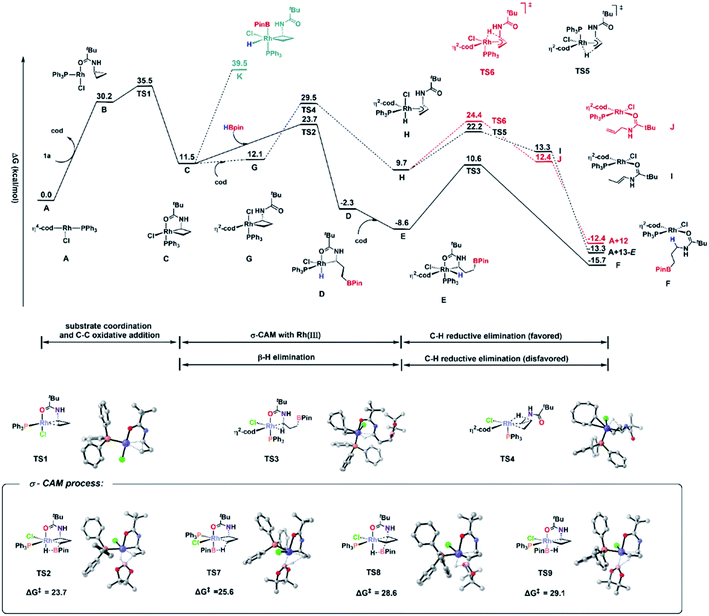 Open Access Article
Open Access ArticleCreative Commons Attribution 3.0 Unported Licence
Correction: Rhodium-catalysed selective C–C bond activation and borylation of cyclopropanes
Yandong
Wang
,
Jingyi
Bai
,
Youqing
Yang
,
Wenxuan
Zhao
,
Yong
Liang
*,
Di
Wang
,
Yue
Zhao
and
Zhuangzhi
Shi
*
State Key Laboratory of Coordination Chemistry, Chemistry and Biomedicine Innovation Center (ChemBIC), School of Chemistry and Chemical Engineering, Nanjing University, Nanjing 210093, China. E-mail: shiz@nju.edu.cn; yongliang@nju.edu.cn
First published on 3rd March 2021
Abstract
Correction for ‘Rhodium-catalysed selective C–C bond activation and borylation of cyclopropanes’ by Yandong Wang et al., Chem. Sci., 2021, DOI: 10.1039/d0sc06186g.
The authors regret that there were a few errors in Fig. 3 of the original article. The correct version of Fig. 3 is shown below.
 | ||
| Fig. 3 Free energy diagram of hydroboration of CPAs using PPh3 as the ligand and DFT-computed four transition states for the σ-CAM pathways. Energies are in kcal mol−1. | ||
On pages 6–7 of the original manuscript, the sentences from “The enamide I is the kinetically favoured product” to the end of this paragraph should be corrected to “Finally, the catalytic species A is regenerated via dissociation of 12 or 13-E from the Rh center. The enamide 13-E is the kinetically favoured product, which supports the observation of 13 in Scheme 3A-3, where HBpin is not added.”
These changes do not alter the scientific conclusions of the manuscript.
The Royal Society of Chemistry apologises for these errors and any consequent inconvenience to authors and readers.
| This journal is © The Royal Society of Chemistry 2021 |
